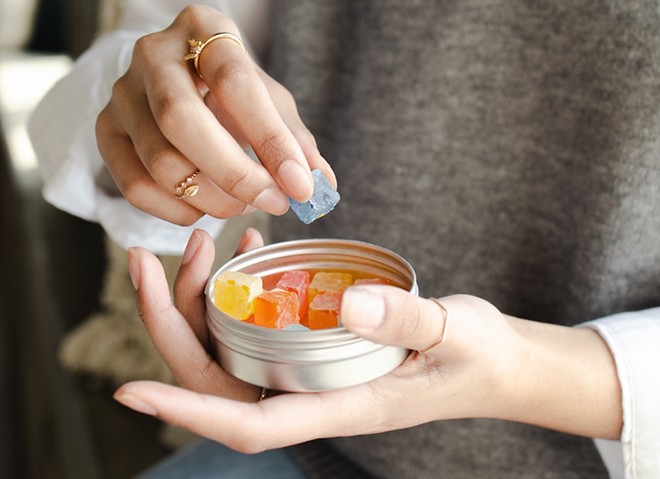More young children are eating cannabis edibles by mistake, study finds


Pexels / Hazel Marie
Some states have restrictions on how cannabis edibles can be packaged in order to make them less appealing to children.
A growing number of children in the U.S. have accidentally consumed cannabis-infused edibles in recent years, according to a new study.
The report, published Tuesday in the journal Pediatrics, analyzed data from the National Poison Data System. It found a staggering 1,375% increase in reported cases of children under the age of 6 accidentally eating cannabis-infused products over the past five years, from 2017 to 2021.
Nearly all of the 7,043 incidents, or 97%, occurred at home, and in 22.7% of cases children were admitted to a hospital.
Cannabis-infused edibles “are particularly appealing to toddlers because they resemble common treats such as candies, chocolates, cookies, or other baked goods,” the authors wrote. And this can be dangerous, because a small amount of edibles can contain a large amount of THC, the substance in cannabis that gets you high, especially for a young child.
“If a child opens a pack of (cannabis-infused) gummy bears, they’re not likely to stop at one. Kids enjoy candy,” said Dr. Marit Tweet, one of the study’s co-authors, according to the BBC. “They may consume the whole package.”
Fortunately, it’s almost impossible to overdose on cannabis. According to the study, the most common reported effect was central nervous system (CNS) depression, which includes drowsiness and lethargy, and other effects include ataxia (loss of control of movement), agitation and confusion.
In about 36% of the cases, the children were treated and released, and less than 2% developed more severe effects.
No deaths were reported by the study.
A growing number of states have legalized cannabis in recent years. The study found an increase in incidents during the COVID-19 pandemic, with Tweet telling the BBC she theorized that the lockdowns could have led to increased opportunities for exposure.
Some states have restrictions on how cannabis edibles can be packaged in order to make them less appealing to children.
Experts advise parents to keep cannabis-infused edibles in a hard-to-reach spot or locked up, away from other food. If a child accidentally consumed a cannabis-infused edible, the experts urges parents to call the poison control hotline at (800) 222-1222.
This story first appeared in Detroit Metro Times, an affiliated publication.
Follow us: Google News | NewsBreak | Instagram | Facebook | Twitter
Follow us: Google News | NewsBreak | Instagram | Facebook | Twitter
















